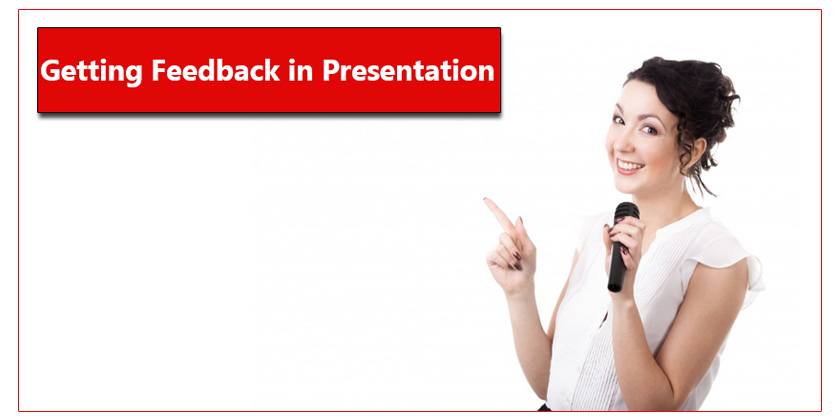
How to Get Positive Feedback
Most of us feel defensive when we hear criticism or get negative feedback, but feedback can be one of the greatest gifts in helping us to become better speakers. Over the years I’ve received helpful feedback and I have received not-so-helpful feedback. How can you tell the difference? There are two indicators of a helpful review:
-
Truthfulness
The first indicator of worthwhile feedback is its truthfulness. If you receive written feedback that reads “Don’t stand in front of your slides; it’s distracting” and you later recall that you stood in front of your slides, that can be valuable feedback. You’ll learn not to do that again. On the other hand, if you receive feedback that reads “all the misspelled words on your slides made you look really unprofessional,” and you don’t have any misspelled words, well, there isn’t a whole lot you can do with that. It says more about the reviewer than it does about you. If your performance critique is truthful, you can learn from it. If it isn’t don’t swear it for a second.
-
Specificity
The second indicator of good critique is specificity, if someone is punctuating their critique with lots of exclamation points and using general words like brilliant, awesome and love a lot, you are probably not getting really specific advice about how to improve your performance.
Getting positive and general feedback can be great for your ego and confidence, but try not to take it too seriously, similarly you might get a rant. Someone may have written words like hate, and stupid with the same gusto that somebody else wrote, love and brilliant.
Once again this lack of specificity is not really helpful feedback, worse getting that kind of criticism can hurt your confidence. Don’t let it get to you, whoever wrote it was not trying to be helpful. It’s safe to dismiss both rants and raves, because neither offers specific advice on how to improve your next performance.
YOU CAN’T PLEASE EVERYONE
No matter how well you think you did, and indeed, you may have delivered a knockout performance. You are not going to please everyone. It may be that you are delivering a message that’s difficult, but important for the audience to hear. Or maybe somebody in the audience has and had enough to eat and he is just play crabby.
If you receive a few negative evaluations that differ drastically from bulk of your reviews, it is not you that has a problem. Don’t waste a minute of your life worrying about a few negative evaluations. However, if you find that your audience have found areas where you can improve, good for you. An honest critic means that you can use this feedback to help you improve your next presentation. And most importantly, please take note of all specific things you do well. When you learn and grow from a positive and balanced place, you will be in fantastic position to connect with your audience for every presentation.

1 comment
Is there any comparing or speech about 6 september or on air force